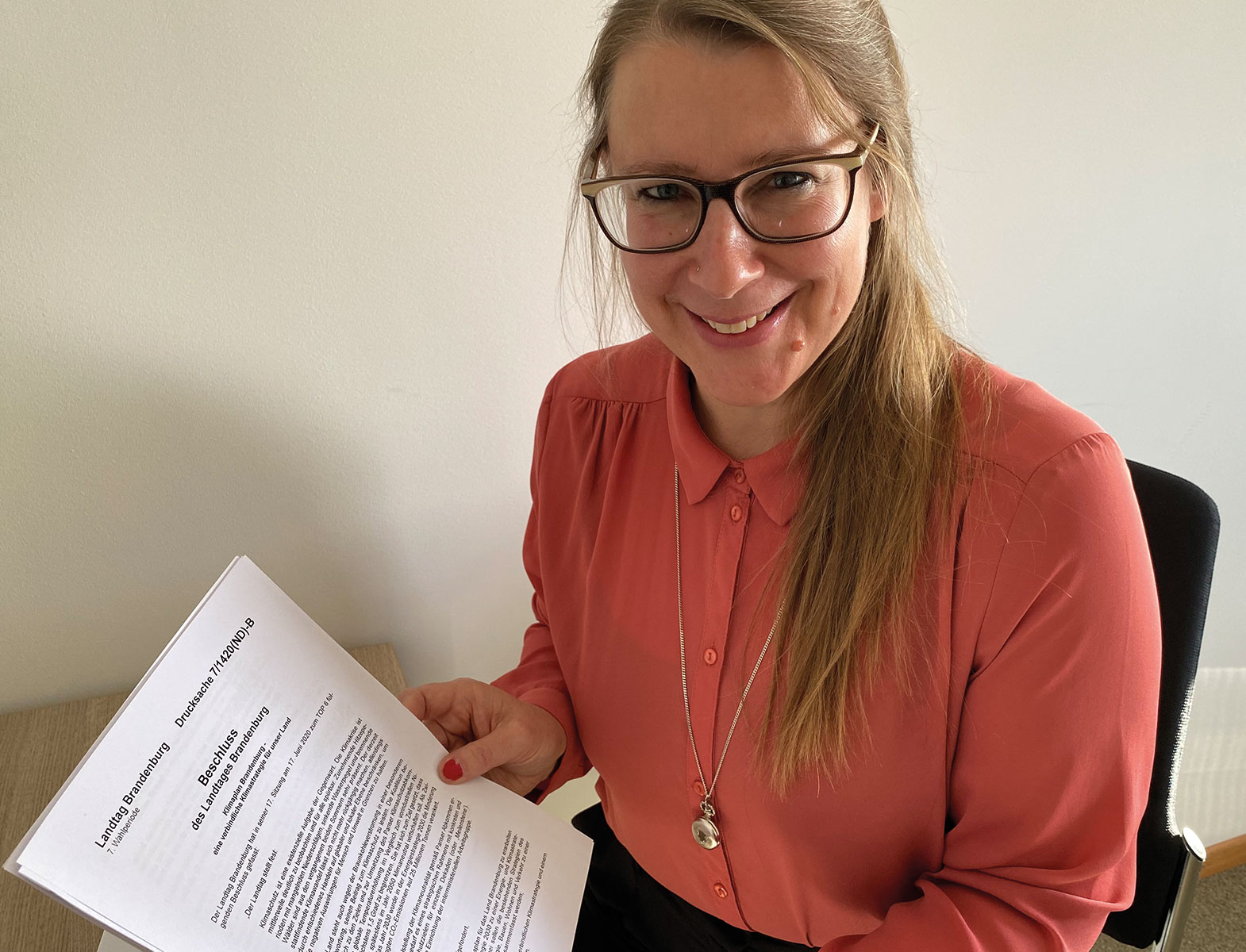You head the Climate Protection and Sustainability Department at the Brandenburg Ministry of Agriculture, Environment and Climate Protection (MLUK). What are your current work priorities?
The department was newly formed at the end of 2020, as the state government created a departmental responsibility for “climate protection” for the first time in the 7th legislative period. From the outset, the core task was to implement and coordinate within the state government the mandate formulated in the coalition agreement and in state parliament and cabinet resolutions to develop a cross-departmental climate strategy and a comprehensive programme of measures with the aim of achieving climate neutrality by 2045 at the latest. In addition to administrative tasks such as preparing expert reports and statements for the House of Representatives and in Bundesrat and state parliament matters, the work is therefore primarily characterised by complex internal and interdepartmental coordination processes. The current focus is on coordinating the implementation of the Brandenburg Climate Plan. In addition, the department realises projects in the field of sustainable development, such as sustainable procurement or the networking of sustainability stakeholders in Brandenburg.
The Brandenburg Climate Plan was adopted on 5 March with the aim of achieving climate neutrality by 2045 at the latest. The technical basis is based on the results of a scientific report, and there was also a broad-based participation process. How binding is the climate plan?
Brandenburg is one of the few federal states that does not have a climate protection law. However, a number of climate-relevant specialised laws have already been passed in this legislative period, such as the Brandenburg Wind Energy Plant Area Targets Act of March 2023 or the Mobility Act of February 2024. Further climate-relevant legal regulations are in preparation or are being examined. Overall, all central, climate-relevant state and specialist strategies that have been further developed or newly created by the relevant ministries in recent years – from the Energy Strategy 2040, the Industrial Strategy, the Mobility Strategy to the Moorland Protection Programme – have succeeded in contributing to the achievement of Brandenburg’s climate targets with their climate-relevant components and are thus both a fixed, binding component of the planning of all specialist ministries and part of the climate plan. This is a great success. In this respect, achieving climate neutrality by 2045 at the latest is not just a task for the climate ministry. The ministries are implementing the measures in the climate plan within their specialist areas of responsibility, continuous monitoring.
Cooperation between Brandenburg and Berlin in achieving the climate targets is becoming increasingly important. What role do you think the Climate Change Centre Berlin Brandenburg can play in this?
Bringing together scientists from both federal states on central issues of climate policy in all relevant areas of action in order to contribute to the scientific processing and development of concrete regional solutions for the transformation to climate neutrality, both across the board and specific to each federal state.
The interview was conducted in April 2024.
Further information – Brandenburg Climate Plan
Picture: MLUK


